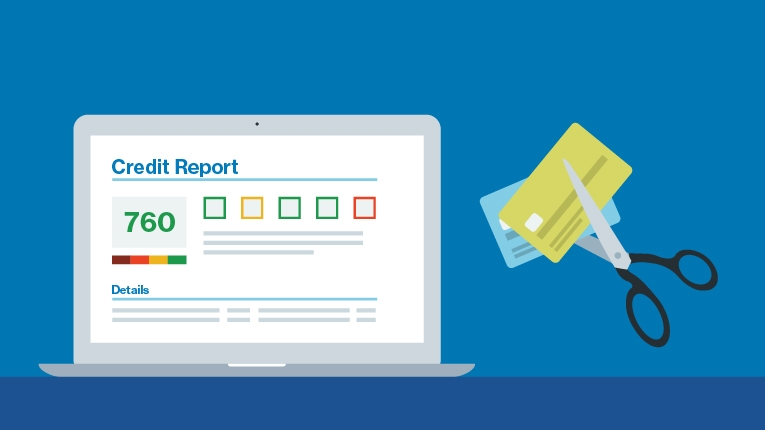8 different types of loans you should know about

The eight most common types of loans you should know about are personal loans, cash loans, debt consolidation loans, balance transfer loans, auto refinance loans, home loans (mortgages), co-borrower loans, and payday loans.
Getting the right type of loan—whether it’s a small, short-term lump sum, or a more substantial long-term loan—starts with understanding your needs.
Let's walk through some of the most common types of loans and the potential benefits of each.
What are the 8 most common types of loans?
There are several different types of loans out there that can fit a wide range of financial needs. Below are the most common types of loans you’ll see from online lenders.
1. Personal loans
Personal loans are a type of debt from banks, credit unions, or online lenders that are offered in fixed lump sums with fixed APRs and minimum monthly payments. Some lenders may charge fees, such as an origination fee, which is a one-time administrative charge when you open your loan.
Typically unsecured, personal loans don’t require collateral but do need a good credit score and solid credit history. Some lenders offer secured loans for those with poor credit scores. Common reasons include refinancing or paying off credit card debt, home improvement projects, medical bills, traveling, wedding/honeymoon costs, and emergency expenses.
Benefits:
Flexibility in how you choose to use the funds
You can receive funds in your bank account the same day you apply
Higher borrowing limit than credit cards
Many personal loans don’t require collateral
2. Cash loans
The total loan amount is transferred directly into your bank account if you're approved for a cash loan. This offers you complete flexibility regarding how to use the funds—whether for home improvement, medical bills, car repairs, moving, or wedding expenses. You can also pay down high-interest debt, such as revolving credit card balances or other personal loans, for one affordable, fixed monthly loan payment.
Benefits:
You decide how to use the money
One affordable, fixed monthly payment
Cash deposited directly into your bank account
3. Debt consolidation loans
If you have high-interest debt, a debt consolidation loan merges all your existing debt into one monthly payment, often at a lower interest rate and more favorable terms than most credit cards.
If you’ve been struggling to manage multiple payments to different lenders or want to pay down large chunks of debt, a debt consolidation loan can help you quickly get your head above water. If you keep up with payments and keep your revolving debt low going forward after getting a debt consolidation loan, this type of loan can help you improve your credit score over time.
Benefits:
Lower interest rates and better terms than most credit cards
One fixed monthly payment
Making on-time payments can help improve credit score
4. Balance transfer loans
With a balance transfer loan, you can save money by having the lender pay down your credit cards or other debt directly on your behalf. For example, at LendingClub, you choose which creditors you want to pay down and how much—and we make the payments for you. Any funds remaining from your loan will be deposited into your bank account.
After that, you’ll have one affordable, fixed-rate monthly payment to be repaid over a set length of time. Compared to balance transfer credit cards, a balance transfer loan has no temporary introductory period to worry about, no interest accrual (so you’ll never owe interest on top of interest), and no sudden increases to your APR.
Benefits:
Pay off multiple creditors quickly
You control who gets paid and how much money to send
Payments are handled for you, so you have less to worry about
5. Co-borrower loans
If you have a lower or bad credit score, a higher debt level, or were denied a loan in the past, a co-borrower loan, also known as a joint personal loan, could help you get back on track. When you apply with a co-borrower (ideally, someone with a better credit score and history than you), the lender will consider both you and your co-applicant's credit history and debt-to-income (DTI) ratios.
Applying with someone else can help you become eligible for a larger loan amount and lower rate than you would have qualified for on your own, saving you money on interest in the long run. Remember that if you miss any payments or default on the loan, your co-borrower will become financially responsible for the loan repayment.
Benefits:
Helps borrowers with challenging financial histories
Considers both applicants' credit history during the approval process
Enables the primary borrower to consolidate debt into one affordable, fixed payment
6. Auto refinance loans
If you’re stuck with a high interest rate and monthly payment from buying your car from a dealer, you may benefit from an auto-refinance loan with a new lender. While it’s relatively quick and easy to apply for an auto refinance loan online, be sure to compare offers with several different lenders first. Some lenders may offer attractive interest rates but tack on high origination fees and other charges, including prepayment penalties. Comparing APR vs interest rate is an important step when evaluating a loan.
Benefits:
Fast, online process
Lower monthly payments and flexible terms
7. Home loans
You have many lending options when it comes time to buy a home. Conventional loans, the most popular option, come with either fixed (interest rate remains the same for the life of the loan) or variable rates, as well as interest-only options, all ranging from 10- to 30 years in length. Variable rate and interest-only loan options often offer lower introductory rates. However, many borrowers experience regular rate increases and/or balloon payments over their loan term.
First-time homebuyers and those with imperfect credit can usually find loans through the Federal Housing Administration (FHA) that require a lower down payment than conventional loans. Special home loan programs offering low interest rates and special terms are available through the Department of Veterans Affairs (VA), USDA, or local organizations in support of eligible military veterans and low—to middle-income borrowers in rural communities.
Benefits:
The range of home loan options can make qualifying easier
Different loan lengths to suit your needs
Buying a home can help build equity and personal net worth
8. Payday loans
Payday loans, typically up to $500, are considered predatory due to their extremely high interest rates, often reaching 400%. With short repayment terms of just two to four weeks, they can easily trap borrowers in a cycle of debt, as they may need additional loans to repay the original one. Payday loans usually don't require credit checks, making them appealing to those with bad credit. If you need help to qualify for a traditional loan, consider applying for a payday alternative loan at a credit union or applying for a loan with a cosigner.
What to consider with different types of loans
The process of taking on new debt can be overwhelming, and there are many factors to consider before signing a loan agreement. It’s important to take the time to review the below factors during your borrowing journey:
Credit score: Your credit score affects your eligibility, interest rates, and terms. Check your score and address any issues before applying.
Loan purpose: Determine why you need the loan and find one that suits your specific purpose, like a personal loan, mortgage, or debt consolidation loan.
Interest rates (APRs): Compare annual percentage rates from different lenders. A lower APR means lower overall cost.
Repayment terms: Look at the length of the loan term. Longer terms have lower monthly payments but higher overall costs, while shorter terms have higher monthly payments but lower total costs.
Fees: Be aware of any fees associated with the loan, such as origination fees, late payment fees, or prepayment penalties.
Loan amount: Ensure the lender can provide the amount you need and check the borrowing limits based on your creditworthiness and income.
Secured vs. unsecured loans: Decide if you want a secured loan (backed by collateral, usually with lower interest rates) or an unsecured loan (no collateral, generally higher interest rates).
Lender’s reputation: Research the lender’s reputation, customer service, and reviews to ensure they are reliable and transparent.
Flexibility: Check if the loan offers flexibility in repayment, such as making extra payments or adjusting payment dates.
Approval time: Consider how quickly you need the funds; some lenders offer faster approval and disbursement than others.
The bottom line
While there are many kinds of loans, you want to ensure you’re getting the best loan that meets your needs. Once you decide what type of loan could be right for you, compare APRs across several different lenders. Pre-qualifying with a lender usually won’t impact your credit score, and gives you a better idea of what different lenders are offering.
Types of loans FAQ
What are the main types of loans?
The main types of loans include personal loans, home loans, student loans, auto loans and more. Each loan type is used for a different purpose and typically has different repayment terms and qualifying requirements.
Which loan type is the best?
There’s no one-size-fits-all answer for when it comes to choosing the best loan type. The best loan type for you depends on your current financial situation and what you plan to use the loan for. If you’re focused on paying down credit card debt, a balance transfer loan might make the most sense and often comes with the lowest APRs. LendingClub also makes it easy to check your rate for a personal loan. It’s free and won’t impact your credit score.
What are secured loan types?
A secured loan is a debt that’s backed by collateral you provide to your creditor. The most common examples being car loans or mortgages. The main benefit of a secured loan is the lower interest rates attached to secured loans, however, if you don’t meet your payment obligations, the lender is legally entitled to seize the property backing the loan.
What are unsecured loan types?
An unsecured loan is a debt that has no collateral backing it. Some examples are credit card debt, student loans and medical bills. If you don’t repay the loan appropriately, your lender can’t legally seize your belongings. As a result, interest rates tend to be higher for unsecured debt over secured loans.




